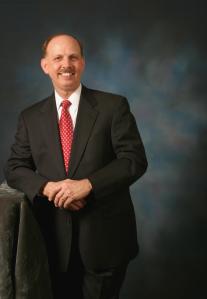California and Colorado Certified Registered Nurse Anesthetists (CRNAs) Can Administer Anesthesia Without the Supervision of a Physician
 By George F. Indest III, J.D., M.P.A., LL.M., Board Certified by The Florida Bar in Health Law
By George F. Indest III, J.D., M.P.A., LL.M., Board Certified by The Florida Bar in Health Law
Recently, courts in both California and Colorado ruled that Certified Registered Nurse Anesthetists (CRNAs) are now allowed to independently administer anesthesia to patients without the supervision of a physician. In California, the decision came from the First District Court of Appeals on March 15, 2012. In Colorado, an appeals court allowed the same practice on July 19, 2012.
Cases Come from a Decision Made by Governors to Opt Out of Requiring CRNAs to be Watched by Physicians.
According to the AMN article, the California and Colorado cases both stem from a decision made by the sates’ governors to opt out of requiring CRNAs to be supervised by a physician. Ordinarily, in order for hospitals, ambulatory surgical centers, and critical access hospitals to receive Medicare reimbursement under Medicare when a CRNA administers anesthesia, federal regulations require that the CRNA must be supervised by a physician. However, states can opt out if governors consult with the appropriate medical boards and decide that an exemption is in the best interest of the citizens of the state.
The Colorado Medical Society and the Colorado Society of Anesthesiologists Sue.
The Colorado court case states that in 2010, the then-Colorado governor decided to opt out critical access hospitals and 14 rural hospitals in the state. The Colorado Medical Society and the Colorado Society of Anesthesiologists sued contending that the opt out was inconsistent with the state law. The plaintiffs requested the Colorado governor’s decision be blocked by the court.
In 2011, a Colorado district court upheld the exemption. The plaintiffs then appealed.
On July 19, 2012, the Colorado Court of Appeals agreed with the district court’s decision and ruled in favor of independent CRNAs.
Click here to read the entire Colorado Court of Appeals case.
California Ruled in Favor of Independent CRNAs Too.
In California, in 2009, the state chose to opt out of requiring physician supervision of CRNAs in Medicare-participating hospitals. The California Medical Association and the California Society of Anesthesiologists sued to block the opt out. The trial court concluded that the opt out was consistent with the law and ruled in favor of independent CRNAs.
On March 15, 2012, the First District Court of Appeals agreed with a lower court’s decision to allow the exemption.
To read the full California Court of Appeals case, click here.
Disagreement on Ruling Between Doctors and CRNAs.
According to the American Medical News article, the regional director of the Colorado Society of Anesthesiologists calls the ruling a safety issue for patients. He believes that by removing a physician’s oversight from the delivery process it diminishes patient care.
On the other hand, the president of the Colorado Association of Nurse Anesthetist praises the ruling stating, in the article, that research shows no differences in patient morbidity or mortality rates whether or not CRNAs are under a doctor’s supervision.
Click here to read the press release from the American Association of Nurse Anesthetists (AANA).
A Sample of the Liability Risks Associated with Being a CRNA.
The administration of anesthesia by a CRNA requires special training and certification. Oversight and availability of an anesthesiologist is required by most organizations. The major risks for CRNAs include the improper placement and maintenance of an airway, failure to recognize significant changes in a patient’s condition and the improper use of anesthetics.
Contact Health Law Attorneys Experienced in Representing CRNAs.
The attorneys of The Health Law Firm represent Certified Registered Nurse Anesthetists (CRNA) in most legal matters, whether concerning licensure, investigations, allegations of impairment or substance abuse, clinical privileges, contracts or employment disputes.
Whether your legal problem involves negotiating a contract or litigating payment issues, we have the experience. We routinely represent nurse practitioners and other health providers in defending allegations of impairment, drug abuse and diversion, as well as in peer review, clinical privileges or certification by a professional association. Medicare payment issues, Medicaid payment issues and insurance payment issues are among those we routinely encounter.
To contact The Health Law Firm please call (407) 331-6620 or (850) 439-1001 and visit our website at www.TheHealthLawFirm.com.
Sources:
Gallegos, Alicia. “Court Rules Nurse Anesthetists Don’t Need Physician Supervision.” American Medical News. (August 6, 2012). From: http://www.ama-assn.org/amednews/2012/08/06/prsa0806.htm
Moss, DO, William. “Anesthesia best Left to Experts” Colorado Society of Anesthesiologists. (August 1, 2012). From:
http://csa-online.org/pdfs/Anesthesia_best_left_to_experts.pdf
Shaffer, Scott. “Colorado Appellate Court Uphold Opt Out from Federal Anesthesia Rule.” American Association of Nurse Anesthetists. (July 19, 2012). From: http://www.aana.com/newsandjournal/News/Pages/071912-Colorado-Appellate-Court-Upholds-Opt-Out-from-Federal-Anesthesia-Rule.aspx
Colorado Medical Society v. John Hickenlooper and Colorado Association of Nurse Anesthetist, Colorado Nurse Association and Colorado Hospital Association, No. 11CA1005 COA (July 19, 2012), available at http://www.courts.state.co.us/Courts/Court_Of_Appeals/Opinion/2012/11CA1005-PD.pdf.
California Society of Anesthesiologists v. California Association of Nurse Anesthetists, No. CPF-10-510191 San Francisco City & County Superior. Ct. (March 15, 2012), available at http://www.courts.ca.gov/opinions/archive/A131049.PDF.
About the Author: George F. Indest III, J.D., M.P.A., LL.M., is Board Certified by The Florida Bar in Health Law. He is the President and Managing Partner of The Health Law Firm, which has a national practice. Its main office is in the Orlando, Florida, area. www.TheHealthLawFirm.com The Health Law Firm, 1101 Douglas Ave., Altamonte Springs, FL 32714, Phone: (407) 331-6620.
“The Health Law Firm” is a registered fictitious business name of George F. Indest III, P.A. – The Health Law Firm, a Florida professional service corporation, since 1999.
Copyright © 1996-2012 The Health Law Firm. All rights reserved.







